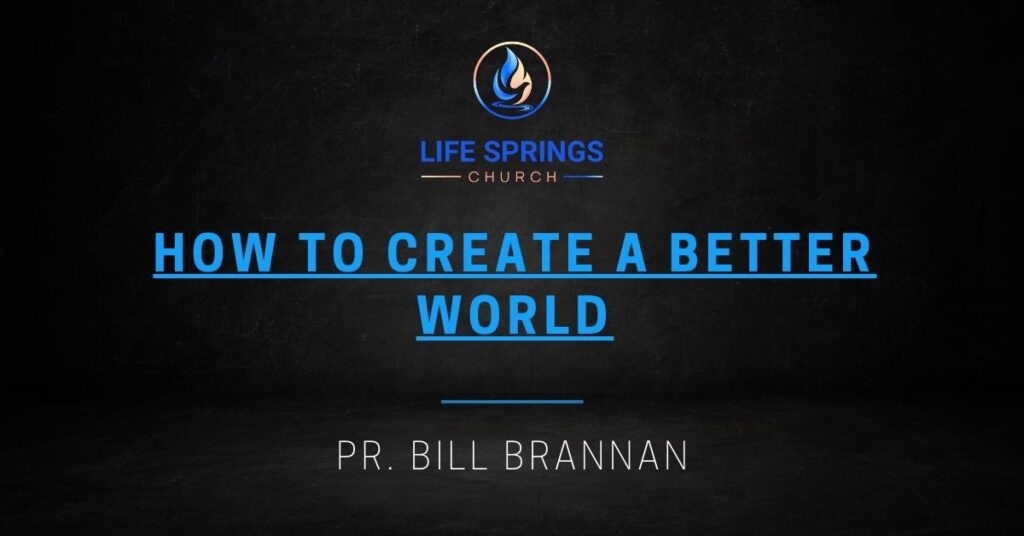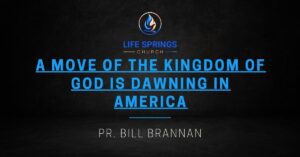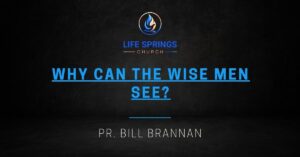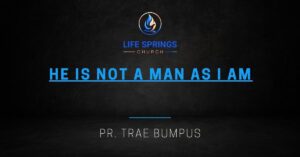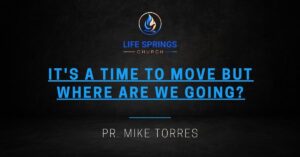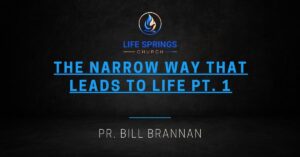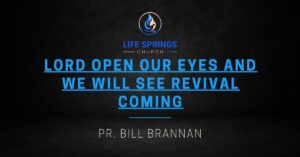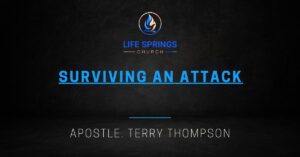Harnessing Faith for Societal Transformation

In an inspiring message, Pastor Bill Brannan delves into the transformative power of faith, exploring how it can reshape society. Drawing from biblical examples and historical narratives, he emphasizes the necessity of hope and genuine discipleship in fostering a better world.
How to Create a Better World
Creating a better world begins with a vision rooted in hope. This hope is not merely wishful thinking; it is a firm belief that transformation is possible. To nurture this belief, we must first understand the principles of the Kingdom of God, which operates like a garden, requiring care, cultivation, and patience.

Photo by Markus Spiske on Unsplash
Every action we take towards building a better world is a seed planted in this garden. We must cultivate our relationships, communities, and environments with the intention of fostering growth and healing. This involves actively participating in social justice, promoting love, and advocating for the marginalized.

Photo by Nicholas Bartos on Unsplash
Expectations for the Future
Our expectations shape our actions. If we believe that the future is bleak, our efforts will reflect that despair. However, when we embrace a hopeful outlook, we are empowered to act. Our expectations should be based on the promises found in Scripture, which affirm that God is at work, transforming lives and societies.

Photo by Anthony Gomez on Unsplash
Building a foundation of hope involves understanding the potential for change. We must envision a world where love prevails, justice is served, and communities thrive. This vision can inspire collective action and motivate individuals to strive for a better tomorrow.
Believing in Transformation
Belief in transformation is essential for progress. History is replete with examples of societal change driven by faith and conviction. The early Christians believed in the power of the gospel to transform hearts and minds, which led to the radical change of entire communities.

Photo by Suzanne D. Williams on Unsplash
To believe in transformation is to recognize that every individual has the potential for renewal. As we witness the brokenness around us, we must remind ourselves that change is possible through the grace of God. This belief fuels our determination to advocate for justice and righteousness in our society.
First Steps to a Better World
The first step towards creating a better world is to foster hope within ourselves and others. We should actively seek out opportunities to encourage those who feel lost or hopeless. Building a support system rooted in love and understanding can empower individuals to take their first steps toward change.

Photo by Neil Thomas on Unsplash
Additionally, we must educate ourselves and others about the issues facing our communities. Awareness is crucial for effective action. By understanding the challenges, we can better equip ourselves to address them and inspire others to join us in our efforts.
The Problem of Sin
At the heart of many societal issues lies the problem of sin. Sin distorts our relationships with God, ourselves, and others. It leads to brokenness, injustice, and despair. To create a better world, we must confront the reality of sin and its consequences.

Photo by FRANCESCO TOMMASINI on Unsplash
However, acknowledging sin should not lead to condemnation. Instead, it should drive us towards compassion and understanding. Recognizing that everyone is affected by sin allows us to approach others with grace, seeking restoration rather than judgment.
Overcoming Temptation
Temptation is another barrier to creating a better world. It often leads individuals down paths of selfishness and destruction. To overcome temptation, we must cultivate spiritual disciplines such as prayer, accountability, and community support.

Photo by Glenn Carstens-Peters on Unsplash
By fostering a strong relationship with God and surrounding ourselves with like-minded individuals, we can resist the allure of temptation. This resistance empowers us to make choices that align with our vision for a better world.
National Sanctification
The concept of national sanctification is crucial in the pursuit of a better world. Just as individual sanctification involves becoming more like Christ, national sanctification requires a collective commitment to righteousness and justice. This involves advocating for laws and policies that reflect God’s heart for humanity.
As citizens of a nation, we hold the responsibility to influence our society positively. This can be achieved through civic engagement, voting, and community involvement. By actively participating in the democratic process, we can work towards a society that aligns with the values of love, justice, and mercy.

Photo by Transly Translation Agency on Unsplash
Finding Hope
Hope is the cornerstone of our faith and the foundation for creating a better world. In times of despair, it can be challenging to maintain a hopeful outlook. Yet, as believers, we are called to find strength in God’s promises and to encourage one another in faith. Just as David did in his time, we must remind ourselves that hope is not lost.

Photo by Angel Balashev on Unsplash
David faced immense challenges, but he chose to trust in God. His Psalms echo a deep understanding of hope amidst adversity. When we feel overwhelmed, we must turn to scripture and find solace in the stories of those who persevered through faith.
The Victory of the Cross
The victory of the cross symbolizes the ultimate triumph over darkness and despair. In 1 Corinthians 1:18, we read that the message of the cross is foolishness to those who are perishing, but to us who are being saved, it is the power of God. This profound truth empowers us to confront the challenges we face in our society.

Photo by Julia Taubitz on Unsplash
Jesus’ sacrifice on the cross was not just an act of love; it was a declaration of victory. It reminds us that even in the face of overwhelming odds, we are never without hope. The resurrection serves as a powerful reminder that life can emerge from death, and transformation is always possible.
Long March Through Institutions
The journey toward societal transformation is often gradual, requiring perseverance and intentionality. Antonio Gramsci’s concept of the “Long March Through the Institutions” illustrates the need for a sustained effort to bring about change. This idea emphasizes that true transformation occurs over generations and is rooted in a shared vision.

Photo by Javier Allegue Barros on Unsplash
As Christians, we must engage in this long march by embedding our values into the fabric of society. This involves participating in education, politics, and culture, ensuring that our faith informs every aspect of our lives. By doing so, we can influence the world around us and create a legacy of hope and righteousness.
Christianity’s Global Impact
The impact of Christianity on the world cannot be overstated. From the abolition of slavery to the promotion of human rights, the principles of the faith have shaped societies for the better. As we reflect on our history, we see that the values of love, justice, and mercy have transformed cultures.

Photo by Greg Rosenke on Unsplash
Today, the call to action remains. We are tasked with continuing this legacy by actively participating in our communities. Through acts of service and advocacy for the marginalized, we embody the love of Christ and extend His kingdom on earth.
The Throne of David
The Throne of David is a powerful symbol of God’s promise and His plan for restoration. David, a man after God’s own heart, serves as a reminder that despite our failures, God can use us for great purposes. His lineage led to the Messiah, fulfilling the promise of redemption.

Photo by Mateus Campos Felipe on Unsplash
In Psalm 37, David offers wisdom on how to navigate a world filled with challenges. He encourages us not to fret over evildoers but to trust in the Lord and do good. This guidance is crucial as we seek to create a better world, reminding us that our actions matter and that we are part of a greater narrative.
Believing in God’s Promises
Believing in God’s promises is essential for our journey of faith. When we anchor ourselves in His word, we find strength and encouragement to persevere. The promises of God are not mere words; they are declarations of His faithfulness and love.

Photo by Maheshkumar Painam on Unsplash
As we face societal challenges, we must lean into these promises. They remind us that God is with us, guiding our steps and empowering us to make a difference. By believing in His goodness, we can rise above despair and take action that reflects His heart for the world.
Pastor Mike’s Closing Thoughts
As we conclude, let us remember that we are called to be bold in our faith. In Acts 24, the apostles prayed for boldness to speak the word of God despite opposition. This same boldness is available to us today as we seek to impact our communities.

Photo by Andre Hunter on Unsplash
We must not shy away from the challenges we face but instead step forward with confidence, knowing that God is on our side. Together, we can build a better world, one act of love and service at a time. Let us embrace our calling and trust in the power of the cross to guide us in every endeavor.
How to Create a Better World
(Preaching Outline)
1) Last week we talked about enculturing the kingdom of God.
a) What is at stake, and the biblical witness for what God wants to accomplish in the world.
b) What is your expectation concerning the future of America and the world? Is it rooted in the bible?
c) I argue that hope that we can create a better world through the gospel is the first step in creating a better world.
d) The fact is that you will not work for the transformation of society if you don’t believe society can be transformed. You will not try to build a Christian civilization if you do not believe that a Christian civilization is possible. It was the utter confidence in the victory of the Christian faith that gave courage to the early missionaries, who fearlessly strode into the farthest reaches of pagan Europe as if they were at the head of an army, preaching the gospel, driving out demons, smashing idols, converting whole kingdoms, bringing vast multitudes to their knees at the feet of Christ. They knew they would win.[1]
e) 1 John 5:4–5 (NKJV) — 4 For whatever is born of God overcomes the world. And this is the victory that has overcome the world—our faith. 5 Who is he who overcomes the world, but he who believes that Jesus is the Son of God?
f) What we are facing is not new, but it requires faith to overcome:
g) Psalm 11:1–4 (NKJV) — 1 In the Lord I put my trust; How can you say to my soul, “Flee as a bird to your mountain”? 2 For look! The wicked bend their bow, They make ready their arrow on the string, That they may shoot secretly at the upright in heart. 3 If the foundations are destroyed, What can the righteous do? 4 The Lord is in His holy temple, The Lord’s throne is in heaven; His eyes behold, His eyelids test the sons of men.
2) Expectations for creating a better world
a) Matthew 13:31–32 (NKJV) — 31 Another parable He put forth to them, saying: “The kingdom of heaven is like a mustard seed, which a man took and sowed in his field, 32 which indeed is the least of all the seeds; but when it is grown it is greater than the herbs and becomes a tree, so that the birds of the air come and nest in its branches.”
b) Matthew 13:33 (NKJV) — 33 Another parable He spoke to them: “The kingdom of heaven is like leaven, which a woman took and hid in three measures of meal till it was all leavened.”
3) The victory of the cross
a) 1 Corinthians 1:18 (NKJV) — 18 For the message of the cross is foolishness to those who are perishing, but to us who are being saved it is the power of God.
b) 1 Corinthians 1:22–25 (NKJV) — 22 For Jews request a sign, and Greeks seek after wisdom; 23 but we preach Christ crucified, to the Jews a stumbling block and to the Greeks foolishness, 24 but to those who are called, both Jews and Greeks, Christ the power of God and the wisdom of God. 25 Because the foolishness of God is wiser than men, and the weakness of God is stronger than men.
4) Creating a world of liberty in the midst of a world of tyranny
a) Antonio Gramsci – (Context and wrestling)
i) The problem, then, was that the “culture” of Western society was blocking the proletarian uprising. As Gramsci wrote in The Prison Notebooks: “The state was only an outer ditch, behind which there stood a powerful system of fortresses.” Furthermore, these “fortresses” were inseparable from the west’s Christian heritage and, despite the secularizing impact of the Enlightenment, remained undergirded by a latent Christian worldview. Consequently, until Christianity’s “cultural hegemony” was broken, no communist revolution would take place and no utopia could arrive.[2]
b) The whole rise of Western Civilization— science and technology, medicine, the arts, constitutionalism, the jury system, free enterprise, literacy, increasing productivity, a rising standard of living, the high status of women— is attributable to one major fact: the West has been transformed by Christianity.[3]
5) The throne of David and the rule of Messiah – David was a king and a prophet.
a) How we participate in creating a better world:
b) Psalm 37:1–3 (NKJV) — 1 Do not fret because of evildoers, Nor be envious of the workers of iniquity. 2 For they shall soon be cut down like the grass, And wither as the green herb. 3 Trust in the Lord, and do good; Dwell in the land, and feed on His faithfulness.
c) Psalm 37:7–11 (NKJV) — 7 Rest in the Lord, and wait patiently for Him; Do not fret because of him who prospers in his way, Because of the man who brings wicked schemes to pass. 8 Cease from anger, and forsake wrath; Do not fret—it only causes harm. 9 For evildoers shall be cut off; But those who wait on the Lord, They shall inherit the earth. 10 For yet a little while and the wicked shall be no more; Indeed, you will look carefully for his place, But it shall be no more. 11 But the meek shall inherit the earth, And shall delight themselves in the abundance of peace.
d) The Law & Gospel
The eschatological issue centers on one fundamental point: Will the gospel succeed in its mission, or not? Regardless of their numerous individual differences, the various defeatist schools of thought are solidly lined up together on one major point: The gospel of Jesus Christ will fail. Christianity will not be successful in its worldwide task. Christ’s Great Commission to disciple the nations will not be carried out. Satan and the forces of Antichrist will prevail in history, overcoming the Church and virtually wiping it out— until Christ returns at the last moment, like the cavalry in B-grade westerns, to rescue the ragged little band of survivors.[4]
For too long, Christians have been characterized by despair, defeat, and retreat. For too long, Christians have heeded the false doctrine which teaches that we are doomed to failure, that Christians cannot win— the notion that, until Jesus returns, Christians will steadily lose ground to the enemy.[5]
[1] David Chilton. Paradise Restored (Kindle Locations 352-360). Kindle Edition.
[2] Robert S. Smith, “Cultural Marxism: Imaginary Conspiracy or Revolutionary Reality?,” Themelios 44, no. 3 (2019): 443.
[3] David Chilton. Paradise Restored (Kindle Locations 235-238). Kindle Edition.
[4] David Chilton. Paradise Restored (Kindle Locations 338-343). Kindle Edition.
[5] David Chilton. Paradise Restored (Kindle Locations 149-151). Kindle Edition.

